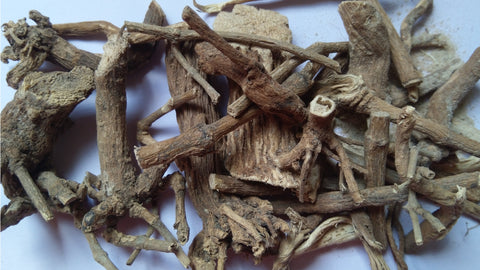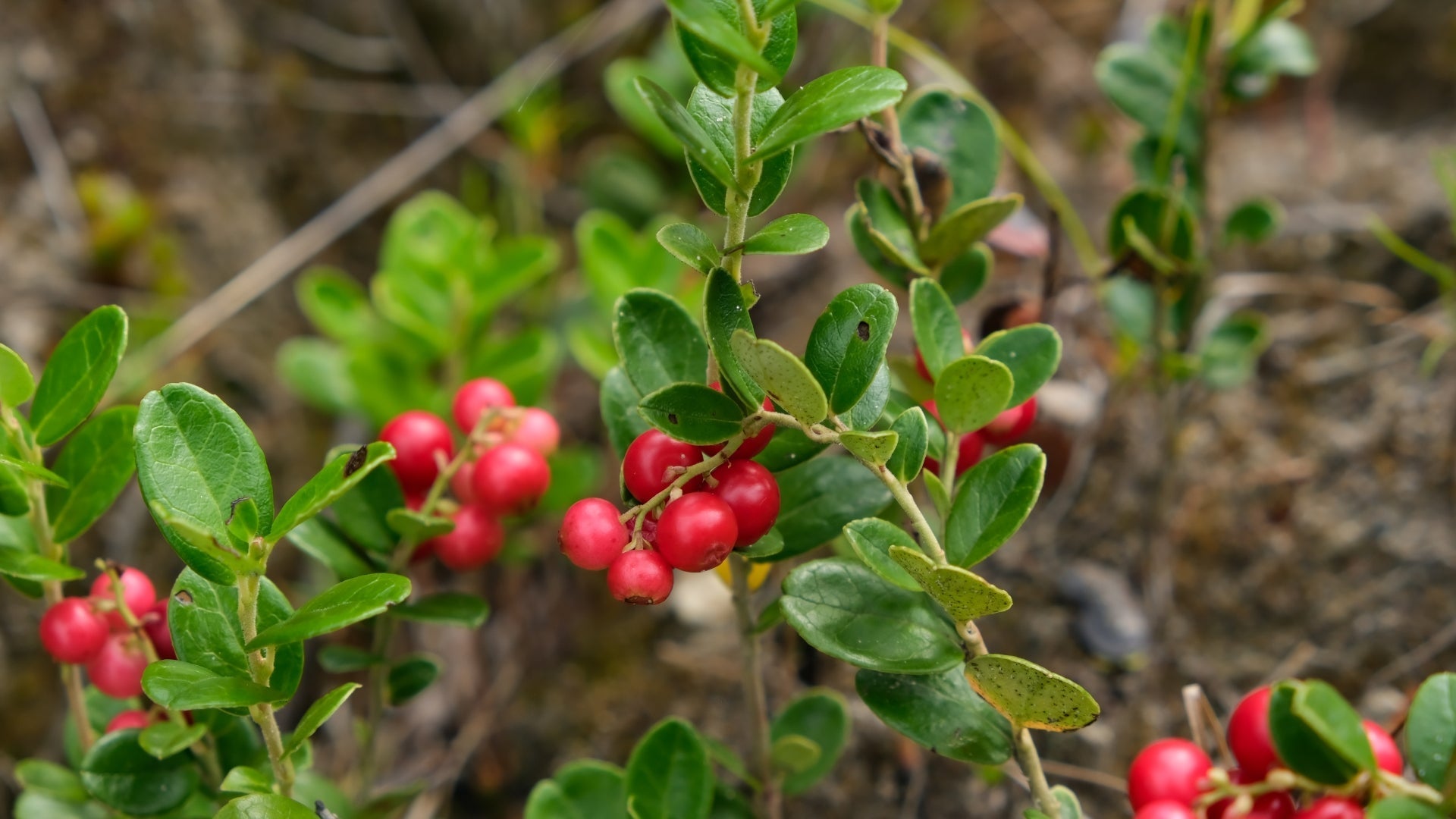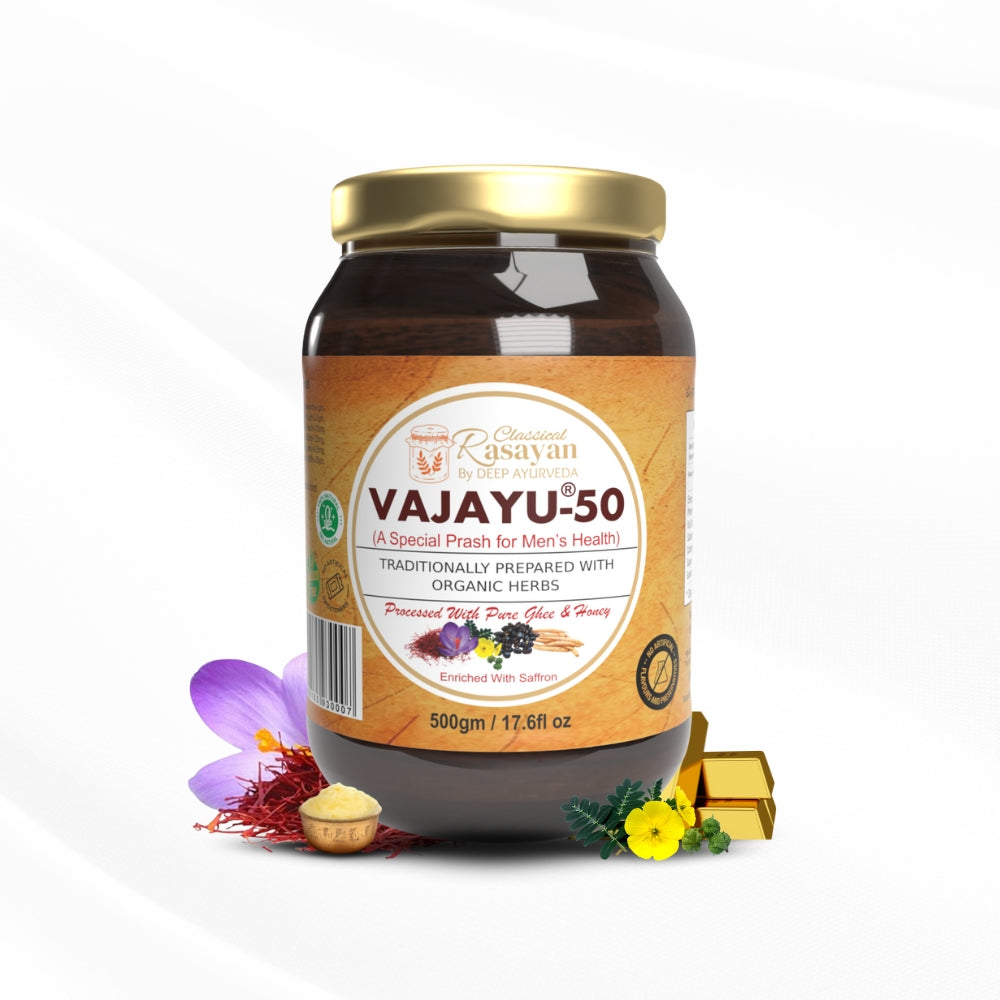The fear of the snake bite is often considered deadlier than the venom itself, but knowing the use of sarpagandha, one can always be safe from both the fear and venom effects. The Sarpagandha herb is useful for neutralizing snake poison and has many stories connected to it—for example, the mongoose which drinks the sap of the leaves of Sarpagandha before a fight with a cobra.
Due to the use of this herb in the treatment of mental disorders, it was also formerly referred to as 'madness medicine'. Moreover, sarpagandha has also been known for its sedative properties; hence, most of the time, it is used in traditional medicine for the treatment of high blood pressure and sleeplessness.
What is the Sarpagandha Plant?
The Sarpagandha plant has various beneficial properties. It has a calming effect on Kapha and Vata doshas, while also stimulating bile production and increasing appetite. Additionally, it can alleviate pain, promote sleep, and enhance sexual satisfaction. Sarpagandha vati s also known for its healing properties, as it can heal wounds and eliminate stomach worms. Furthermore, it can neutralize toxins in animals such as rats, snakes, and lizards, including slow-acting poisons like Garavish. It is effective against diseases, pain, and fevers caused by Vata imbalance. The root of the plant is characterized by its strong heat and bitterness, acting as a mild laxative that helps in bowel movements and generates warmth in the body.
What Is Sarpagandha (Or Snakebite, For That Matter)?
Snakebite refers to the injection of venom by a snake through its fangs into the victim's body, which can result in various symptoms ranging from mild to severe, including pain, swelling, tissue damage, and in extreme cases, death if not treated promptly.
As for Sarpagandha, it is a significant herb in traditional medicine with a history dating back 3000 years in India. It is known for its bitter, pungent, and astringent taste, and it is considered drying and heating for the stomach. Sarpagandha is a small, glossy, evergreen shrub with roots that penetrate deep into the soil, typically measuring around 18-20 inches long with crooked shapes and brownish-yellow bark. The root has no particular odor but is notably pungent and bitter. The plant's bark is yellow, while its leaves are tufted, lance-shaped, 3-7 inches long, and stalked, with dark green tops and lighter undersides. Sarpagandha flowers usually bloom between November and December, with small fleshy fruits that turn from green to purple-black.
The medicinal use of Sarpagandha primarily revolves around its root. Besides the main species, there are two other species used for medicinal purposes, one of which is Rauvolfia tetraphylla L., a smaller plant with leaves arranged in groups of four, green-white flowers in clusters, and spherical green fruits that turn purple-pink when ripe. Its root is long and brownish-white. However, it is crucial to note that the root of Rauvolfia tetraphylla L. can be mistaken for that of the serpent plant, which requires careful identification to avoid adulteration.
Sarpagandha Benefits and Uses
Sarpagandha, also known as Indian Snakeroot or Rauvolfia serpentine, is a plant with a long history of use in traditional medicine, particularly in Ayurveda. It has been valued for over 3000 years in India for its various therapeutic properties and is considered a major ayurvedic herb in ancient herbal medicine.
Botanical Description -
Sarpagandha vati is a small, evergreen shrub with shiny leaves and small, fleshy fruits that turn purple-black when ripe. The roots of the plant are crucial for medicinal use and are typically around 18-20 inches long, with a brownish-yellow bark. The leaves are lance-shaped, tufted, and can range from 3 to 7 inches in length. The plant usually blooms with white or greenish-white flowers in clusters around November-December.
Ayurvedic Medicinal Uses

Sarpagandha is an ayurvedic herb with a wide range of therapeutic uses and benefits. However, like any herbal remedy, it should be used judiciously and under professional guidance to ensure safety and effectiveness.
Respiratory Conditions: Sarpagandha has been traditionally used to treat respiratory ailments such as whooping cough (Kukkurkhansi) and bronchitis. It can be consumed in powder form with honey to alleviate persistent coughing and breathing difficulties.
Gastrointestinal Disorders: This herb is also beneficial for gastrointestinal issues. It helps in relieving stomach pain, indigestion, and constipation. A decoction made from the root of Sarpagandha is recommended for these purposes.
Cardiovascular Health: Sarpagandha is well-known for its positive effects on heart health. It is often used to manage high blood pressure (hypertension) and heart-related problems. Consuming Sarpagandha extract or Sarpagandha Vati, a tablet form, under the guidance of an Ayurvedic practitioner like Baldeep Kour at Deep Ayurveda, can be effective in regulating heart rate and preventing arterial hardening.
Menstrual Disorders: For women's health, Sarpagandha can help regulate menstruation and alleviate menstrual disorders such as pain, irregular cycles, and excessive or reduced bleeding. Mixing the dried fruit powder of Sarpagandha with black pepper and ginger is a common remedy.
Neurological Disorders: Sarpagandha is beneficial for managing neurological disorders like mania, epilepsy, and insomnia. Consuming the root powder can help calm the nervous system and promoting better sleep.
Detoxification: Sarpagandha's detoxifying properties make it useful in purifying the body and eliminating toxins. This can contribute to overall health and well-being.
Snakebites and Insect Bites: Interestingly, Sarpagandha is also used to counteract the effects of venom from snakebites and insect bites. Applying crushed fresh leaves or the powdered root to the affected area can provide relief.
Dosage and Precautions:
- The recommended dosage of Sarpagandha varies depending on the specific condition and individual constitution. It is important to consult with a qualified Ayurvedic practitioner for proper guidance.
- Sarpagandha should be used with caution, especially in high doses, as it can have potent effects on blood pressure and the nervous system.
- Pregnant and lactating women, as well as individuals with certain medical conditions, should avoid using Sarpagandha without medical supervision.
Side Effects of Sarpagandha:
Overconsumption of Sarpagandha can lead to certain drawbacks:
- Nervousness and Heart Heaviness: Excessive intake of Sarpagandha may result in symptoms like nervousness, a feeling of heaviness in the heart, and low blood pressure.
- Stomach Irritation: In some cases, it can cause stomach irritation or hyperacidity. Therefore, it is essential to consume Sarpagandha in appropriate quantities and after consulting with a healthcare professional.
Who Should Avoid Sarpagandha:
Certain individuals should refrain from consuming Sarpagandha:
- Breastfeeding and Pregnant Women: Sarpagandha is not recommended for breastfeeding mothers or pregnant women.
- Children: It is advisable for children to avoid taking Sarpagandha.
- Alcoholics: Individuals who consume alcohol should also avoid Sarpagandha.
Experience Holistic Wellness with Deep Ayurveda's Sarpagandha Vati
In conclusion, Sarpagandha is a plant with many benefits, but it's essential to know its uses and potential side effects. It can help with blood sugar levels, heart rhythm, and digestion, but it's crucial to use it carefully.
Deep Ayurveda's Sarpagandha Vati, a classical Ayurvedic formulation, shows the wisdom of ancient times. It's supported by old Ayurvedic texts and lots of research, making it a trustworthy choice for different health issues. Adding Sarpagandha Vati to your health routine lets you blend old knowledge with new science, promoting overall well-being with Ayurveda's trusted guidance.






1 Comment
Solution of different different deases